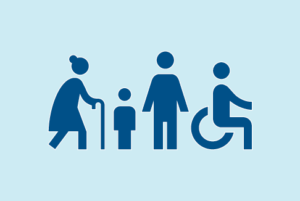On June 12, the U.S. Department of Health and Human Services finalized revisions to regulations implementing the nondiscrimination provision of Section 1557 of the Affordable Care Act. The final rule makes the following changes:
- Redefines “discrimination based on sex” to exclude discrimination based on termination of pregnancy, sexual orientation, or gender identity. However, California law continues to prohibit discrimination on the basis of sexual orientation or gender identity. In addition, the U.S. Supreme Court ruled on June 15 that the language of the Civil Rights Act of 1964, which prohibits sex discrimination, applies to discrimination on the basis of sexual orientation or gender identity.
- Eliminates the requirement to provide a Section 1557 nondiscrimination notice to patients or post signage. However, both California law and the Medicare Conditions of Participation require patients to be given notice of their rights, including the right to be free of discrimination.
- Eliminates the requirement to designate a Section 1557 compliance coordinator
- Eliminates the requirement to have a special Section 1557 grievance procedure. However, the Medicare Conditions of Participation require every hospital to have a grievance procedure and inform patients of it.
- Describes a four-factor test to determine when interpreter or translation services are required. Hospitals should be aware that they must continue to comply with state law and another federal law requiring the provision of interpreter and translator services.
- Eliminates the standards for video remote interpreting for limited English proficient individuals, allowing audio-only remote interpreting
- Exempts some health insurers from compliance with the rule
Because much of the repealed provisions were duplicative of other requirements, the effect of the final rule on California hospitals is minimal. These revisions are scheduled to take effect on Aug. 19, although opponents have stated their intent to seek an injunction preventing them from taking effect.
CHA will keep members informed of developments. For detailed information on state and federal laws regarding nondiscrimination, grievance procedures, and interpreter services, see chapter 1 of CHA’s Consent Manual: A Reference for Consent and Related Health Care Law.


